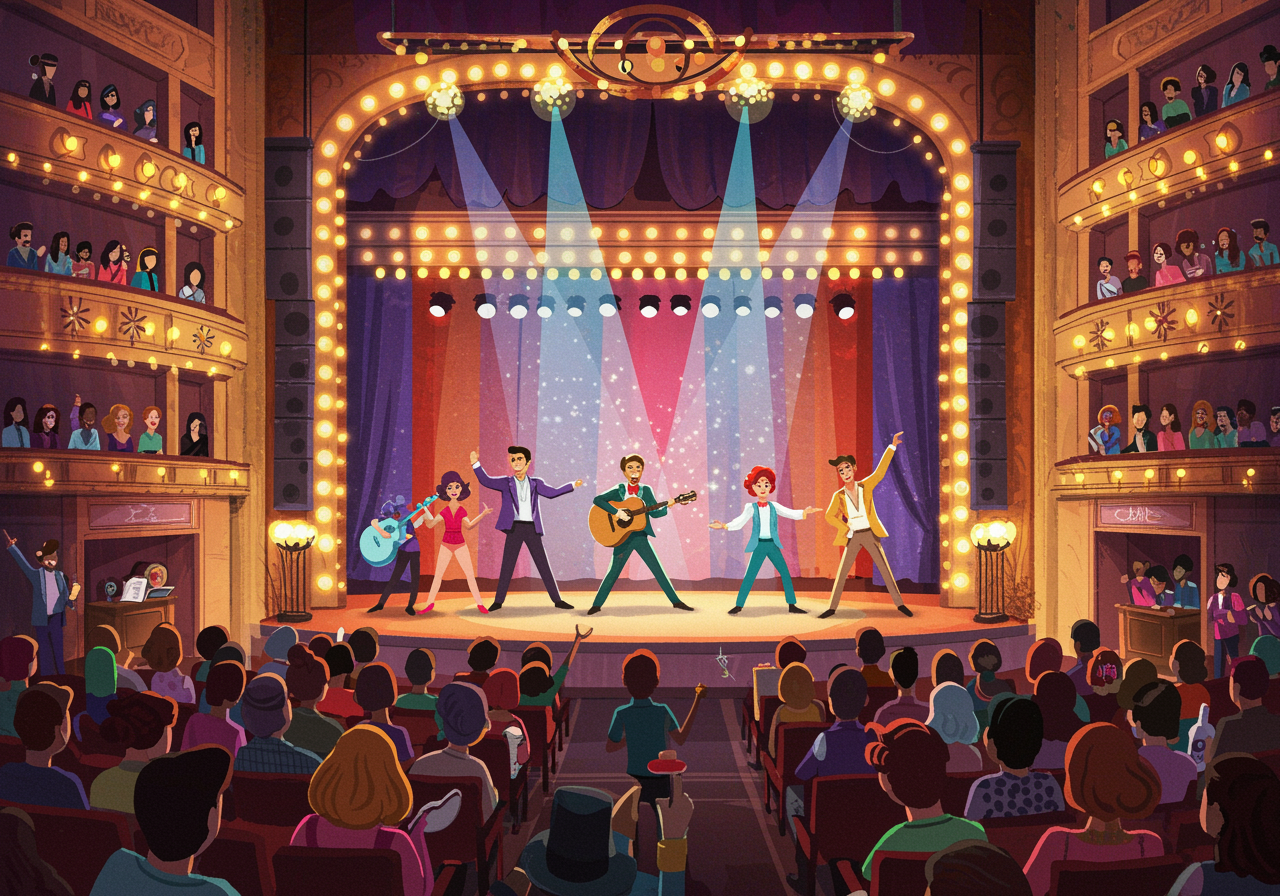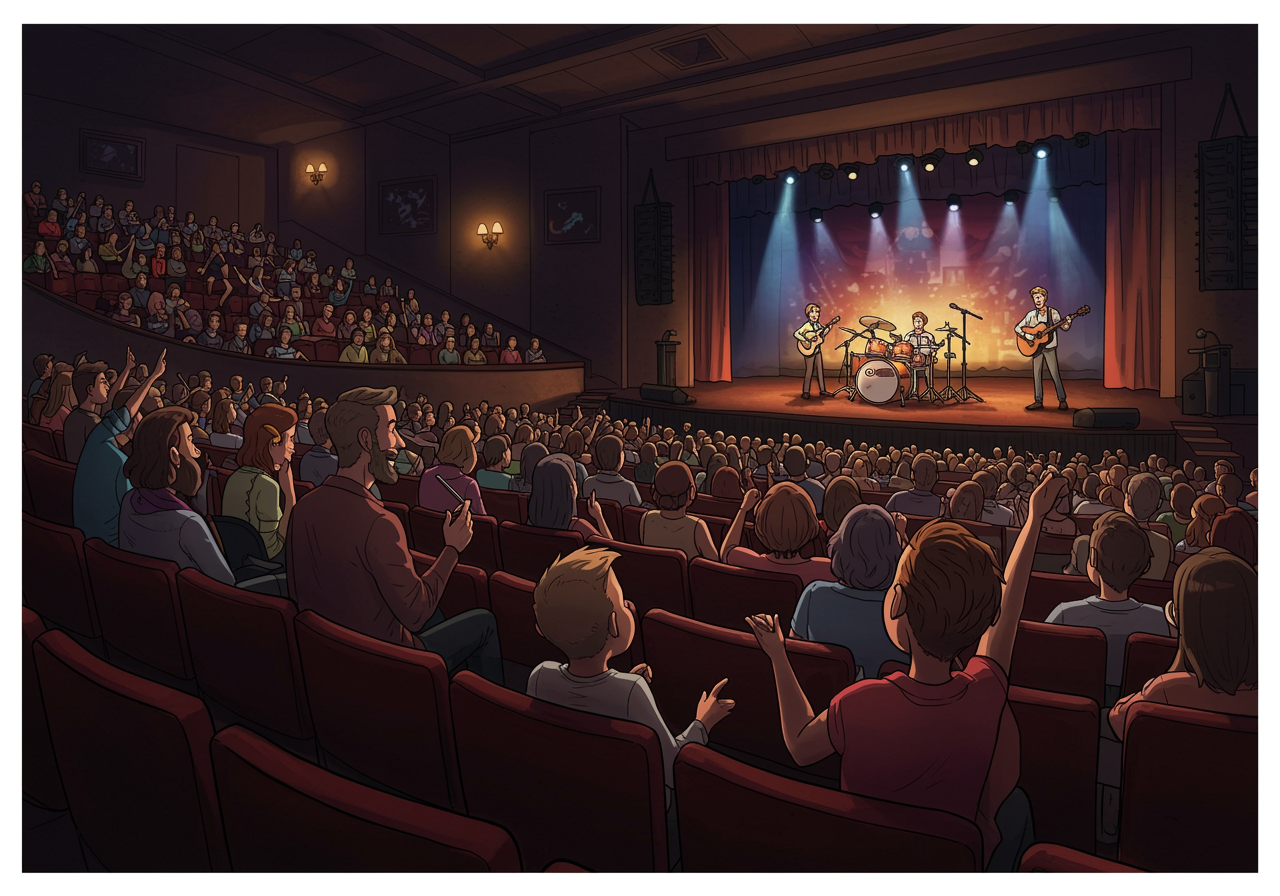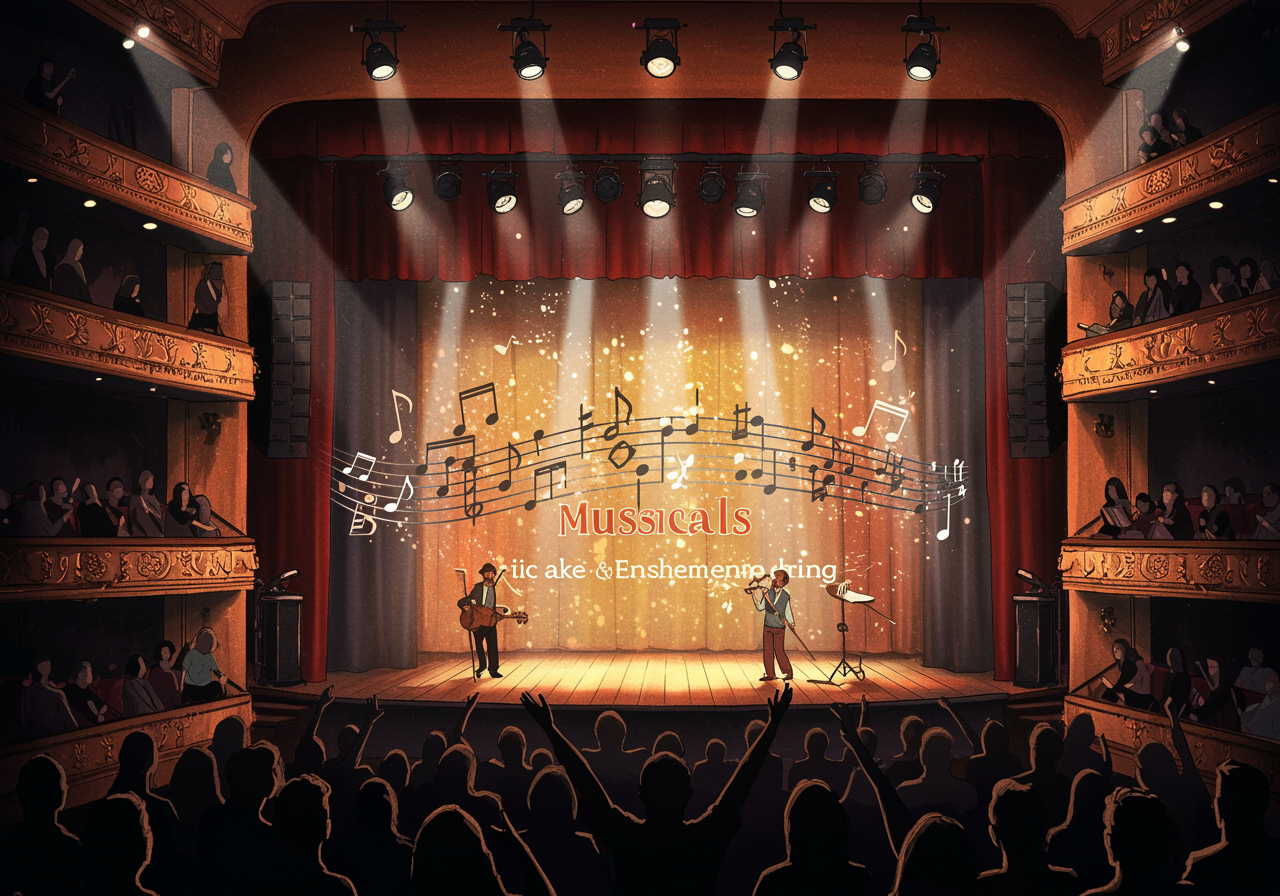From Broadway Dreams to Big Bus Tours: The Musical Magic Formula!
Discover the secret ingredients that turn a small stage show into a nationwide sensation
Ever wonder how a musical goes from a single theater to selling out shows across the country? Let’s peek behind the curtain and explore the amazing journey together!
Overview
Think about your favorite song that you can't stop humming—now imagine that feeling times a hundred with amazing costumes, dancing, and storytelling! Understanding what makes entertainment successful helps kids appreciate the creativity, hard work, and teamwork behind their favorite shows. It's like discovering the recipe for viral videos, but with way more sequins and show tunes. Plus, talking about what makes something popular teaches kids to think critically about media and entertainment they love.

Understand in 30 Seconds
Get up to speed quickly
- The Story Must Hook You: A touring musical needs characters and a plot that make audiences laugh, cry, or cheer in every city. If people don't care what happens next, they won't buy tickets!
- Songs That Stick in Your Brain: The music has to be so catchy that people leave the theater humming and want to listen again. Think earworms, but the good kind that make you want to dance!
- Money Talks (And Walks): Tours cost millions to move sets, costumes, and cast between cities. The show must sell enough tickets to cover these huge expenses and still make profit.
- Word-of-Mouth Magic: When audiences love a show, they tell friends, post on social media, and create buzz. This free advertising is more powerful than any TV commercial!
Real Life Scenario
Situations you can relate to
Imagine you create the most amazing TikTok dance that your whole school loves. Now, what if you wanted to teach that dance to kids in every state? You'd need to make sure the dance is easy enough to learn but cool enough that people want to share it. You'd need money for travel, maybe backup dancers, and costumes. Most importantly, you'd need people in each city to be so excited they convince their friends to come watch. That's exactly what happens with musicals—except instead of a 30-second dance, it's a 2-hour story with songs, sets, and spectacular performances that need to work perfectly in 50 different theaters!

Role Play
Spark a conversation with “what if” scenarios
What if you were a theater producer deciding whether to take a musical on tour?
- Role play: One person pitches their favorite movie as a musical while the other asks tough questions: 'How much will costumes cost?' 'Will people in small towns like this?' 'What if the main actor gets sick?'
What if you had to convince a skeptical parent to buy expensive musical tickets?
- Role play: Practice your most persuasive arguments about why this show is worth the money, using reviews, social media buzz, and emotional appeals. Switch roles and see who's more convincing!
What if you were a marketing team trying to sell tickets in a new city?
- Role play: Create a 30-second commercial, design a poster, and plan social media posts that would make people excited about your musical. Include what makes it special and why audiences will love it.
FAQs
Frequently asked questions people want to know
Why do some Broadway hits never tour while others do?
Tours need shows that can work in different venues with simpler sets and smaller orchestras. Some Broadway hits are too expensive or complicated to move around the country easily.
How do producers know if a musical will be popular nationwide?
They look at ticket sales, audience reactions, social media buzz, awards, and reviews. Sometimes they test the show in a few cities first to see how people respond.
What's the difference between a Broadway musical and a touring version?
Touring shows usually have simpler sets that can be packed up and moved, smaller orchestras, and designs that work in many different theater sizes and shapes.
Examples in the Wild
See how this works day to day
- Hamilton became a cultural phenomenon through innovative hip-hop storytelling and social media buzz, leading to a highly successful national tour and Disney+ release (Broadway World)
- The Lion King has been touring for over 20 years because of its stunning puppetry, universal story, and visual spectacle that works in any venue (Variety Entertainment)
- Dear Evan Hansen connected with audiences through social media themes relevant to teenagers, creating strong word-of-mouth that supported its national tour (The New York Times)
- Frozen the Musical leveraged the beloved Disney movie's popularity but had to prove it could stand alone as live theater to justify its touring investment (Entertainment Weekly)
In Summary
What you should know before you start
- Successful touring musicals need unforgettable stories and music that connect with audiences everywhere
- The business side matters—shows must sell enough tickets to cover massive touring costs and make profit
- Audience buzz and word-of-mouth recommendations are more valuable than traditional advertising
- Touring versions often adapt Broadway shows to work in different venues while keeping the magic intact
Pro-tip for Parents
You got this!
If your child seems disappointed that a favorite show isn't touring to your area, use it as a chance to explore alternatives together. Look up filmed versions, listen to soundtracks, or find local theater productions. Help them understand that entertainment success involves both creative and business decisions—it's not personal when shows don't come to every city. This builds resilience and appreciation for the art form while keeping their enthusiasm alive.

Keep an Eye Out For
Find these examples in everyday life
- Tony Awards announcements, which often predict which shows might tour successfully
- Local theater season announcements that might include touring Broadway productions
- Social media trends around musical theater songs or dances that indicate growing popularity
Explore Beyond
Look up these related research topics
- How movie studios decide which films get wide vs. limited releases
- What makes a song go viral on streaming platforms and social media
- How concert tours work and why some artists can fill stadiums while others play smaller venues